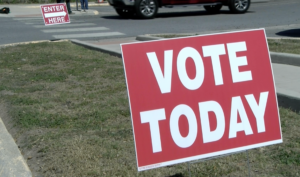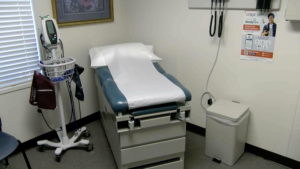BROWNSVILLE – States such as, Massachusetts, New York, California and more filed a lawsuit against the Trump Administration over the new regulations it will make to the Public Service Loan Forgiveness Program.
The lawsuit, filed on Nov. 3, argued that the new regulations for the PSLF violate the first amendment and states’ rights protections as well as the due process clause.
Employees who work for qualifying employers or organizations can use the PSLF to waive student debt.
Some public service jobs include nurses, public school teachers, public safety, and government workers.
In a document from the Department of Education released on Oct. 31, the regulations state if any employer or organization is involved in illegal activities, employees will not qualify for loan forgiveness to prevent taxpayer dollars from being, quote, “misused.”
Illegal activities are described in the document as aiding or abetting violations of federal immigration law, engaging in chemical or surgical castration of children, engaging in the trafficking of children to another state for emancipation purposes, supporting or engaging in terrorism or violent influences against federal policy and engaging in a pattern of aiding or abetting discrimination.
Alvaro Corral, a UTRGV Political Science professor, said the “illegal activities” language might be politically motivated.
“[The] Trump Administration has essentially threatened to withhold this program or end this program for states, for public servants in states that don’t go along with a series of president trump’s, executive orders, especially in the realm of immigration enforcement,” Corral said.
According to court documents, the plaintiffs of the suit argue that the “illegal activities” description is too vague.
Corral said these new regulations give the administration the power to decide what is considered illegal.
“Illegal activity can be a catch all for, you know, whatever the trump administration says is illegal activity, right,” Corral said. “So, you know, that that’s one way to sort of, again, broaden the ability to withhold some of these funds by, you know, keeping these rules somewhat vague.”
According to the Education Data Initiative, the government has forgiven more than 1.8 billion dollars of student debt to public service employees who made 120 minimum payments on their student loans and were employed in public service for ten years.
Corral said the program provides incentives to students going into professions such as public education.
“One way to make, this profession a bit more lucrative for students is to say, ‘hey, you know, if you [are out] of, college, and go into teaching at a public school, you know, an additional benefit will be that maybe you’ll have some of your student loan debt forgiven,” he said. “That as a sort of benefit is now being called into question right now, all of a sudden, your ability to be, a beneficiary of student loan forgiveness is dependent upon, you know, the decisions that are sort of out of your control as a person.”
Daisy Guillen, an education senior, said there should not be a change in ideology in order to qualify for the loan forgiveness.
“Why should children and all the adults in the community have to suffer over the change of ideologies,” Guillen said. “Like, there is no need for all of us to be the same and then who? Who gets to tell me why I can’t or I can’t like work with a certain group. like there is nowhere that states that, ‘oh, you can’t do this.’ Like, where does my freedom go? You know?.”
The ruling is expected to begin July 1, 2026.





